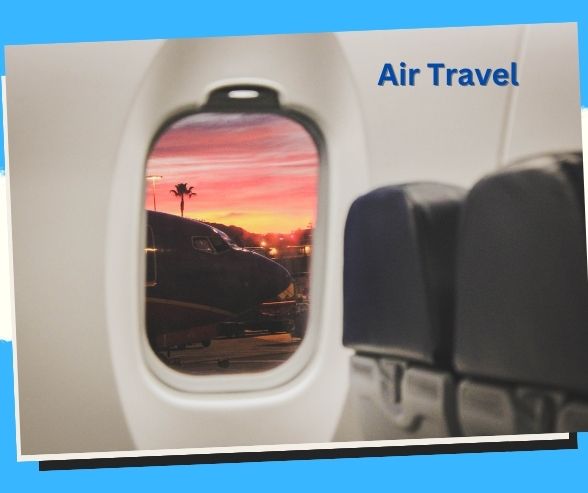
Step Into the Future: Redefining Travel Experience with Virtual Reality Tours
Escape to exotic locales from the comfort of your home as virtual reality tours redefine the way we explore the world.
Embark on a Virtual Journey: Redefining Travel Experience with Virtual Reality Tours 🌐🔮
In an age where technology continues to push the boundaries of possibility, virtual reality (VR) tours have emerged as a transformative tool in the realm of travel. Offering immersive and interactive experiences, VR tours allow travelers to explore destinations from the comfort of their own homes, redefining the way we perceive and engage with travel. In this guide, we’ll delve into the world of virtual reality tours, exploring their benefits, practical applications, and tips for making the most of this innovative technology.
Unveiling the Magic of Virtual Reality Tours 🌟🔍
Virtual reality tours transport users to distant lands, historical sites, and natural wonders through immersive 3D simulations. By donning a VR headset or using a compatible device, travelers can embark on virtual journeys that replicate the sights, sounds, and sensations of real-world destinations.
Key Features of Virtual Reality Tours
- Immersive Environments: Virtual reality tours create lifelike environments that allow users to explore destinations in stunning detail, from iconic landmarks to hidden gems.
- Interactivity: Users can interact with virtual environments, navigate through landscapes, and engage with multimedia content, enhancing the sense of presence and immersion.
- Educational Value: Virtual reality tours offer educational insights and historical context, providing enriching experiences for students, history enthusiasts, and curious travelers alike.
The Impact of Virtual Reality Tours on Travel Experience 🌍💼
Virtual reality tours have revolutionized the way travelers research destinations, plan vacations, and share their experiences with others. By offering a preview of what awaits, VR tours empower travelers to make informed decisions and embark on more meaningful journeys.
Benefits for Travelers
- Pre-Trip Exploration: Virtual reality tours allow travelers to preview destinations and attractions before booking their trips, helping them make informed decisions and set realistic expectations.
- Accessible Travel: For individuals with mobility issues or travel restrictions, virtual reality tours provide an accessible means of exploring destinations and experiencing cultural landmarks from afar.
- Memorable Experiences: VR tours create memorable and immersive experiences that inspire wanderlust and fuel curiosity, encouraging travelers to seek out new adventures and broaden their horizons.
Benefits for Travel Industry
- Enhanced Marketing: Virtual reality tours serve as powerful marketing tools for destinations, hotels, and tour operators, captivating audiences and driving engagement through immersive storytelling.
- Increased Bookings: By offering virtual previews of accommodations, attractions, and activities, travel businesses can attract more bookings and conversions from prospective travelers.
- Cost Savings: Virtual reality tours can reduce the need for costly marketing collateral and physical site visits, resulting in cost savings for travel businesses and greater efficiency in the booking process.
Practical Tips for Exploring Virtual Reality Tours 🎮🗺️
Whether you’re a curious traveler or a travel industry professional, here are some practical tips for exploring virtual reality tours and maximizing their potential:
For Travelers
- Choose a Reliable VR Platform: Select a reputable VR platform or app that offers a diverse range of virtual tours and experiences tailored to your interests and preferences.
- Invest in Quality VR Gear: Invest in a high-quality VR headset or compatible device to enjoy the full immersive experience of virtual reality tours, ensuring optimal visual and audio fidelity.
- Explore Diverse Destinations: Take advantage of virtual reality tours to explore a variety of destinations, from iconic landmarks to off-the-beaten-path locales, and discover new places to add to your travel bucket list.
- Share Your Experience: Share your virtual reality travel experiences with friends, family, and fellow travelers to inspire others and foster a sense of community around virtual exploration.
For Travel Industry Professionals
- Create Compelling VR Content: Invest in creating high-quality VR content that showcases your destination, hotel, or tour experience in an engaging and immersive manner, capturing the attention of prospective travelers.
- Offer Virtual Previews: Use virtual reality tours to provide virtual previews of accommodations, attractions, and activities, giving travelers a taste of what they can expect and enticing them to book their trips.
- Engage with Audiences: Engage with audiences through interactive VR experiences, live virtual tours, and Q&A sessions, fostering meaningful connections and building brand loyalty among travelers.
- Measure Success Metrics: Track key performance metrics such as engagement, conversion rates, and customer feedback to assess the effectiveness of your virtual reality marketing efforts and identify areas for improvement.
Benefits of Virtual Reality Tours
- Global Accessibility: Virtual reality tours enable travelers from around the world to explore destinations regardless of geographical barriers, promoting accessibility and inclusivity in travel.
- Immersive Experience: VR tours provide a fully immersive experience, allowing travelers to feel as though they are physically present in the destination, enhancing engagement and emotional connection.
- Cost-effective Exploration: Virtual reality tours offer a cost-effective alternative to traditional travel, eliminating expenses such as airfare, accommodation, and dining while still providing authentic cultural experiences.
- Environmental Sustainability: By reducing the need for physical travel, virtual reality tours contribute to environmental sustainability by minimizing carbon emissions and conserving natural resources.
- Safety and Security: VR tours provide a safe and secure way for travelers to explore destinations, particularly in areas with safety concerns or travel restrictions, ensuring peace of mind for both travelers and tour operators.
- Educational Opportunities: Virtual reality tours offer educational content and historical insights, enriching travelers’ understanding of cultural heritage, landmarks, and iconic sites around the world.
- Customization and Personalization: VR tours can be tailored to individual preferences and interests, allowing travelers to customize their experiences based on their desired destinations, activities, and timeframes.
- Time Flexibility: Virtual reality tours offer flexibility in scheduling, allowing travelers to explore destinations at their own pace and convenience without being constrained by fixed itineraries or tour schedules.
- Innovative Marketing Tool: Virtual reality tours serve as a powerful marketing tool for tourism destinations, attractions, and hospitality businesses, attracting prospective travelers and enhancing brand visibility.
- Social Connection: VR tours facilitate social interaction and shared experiences among travelers, friends, and family members, fostering connections and camaraderie across distances.
Case Studies: Exemplary Applications of Virtual Reality Tours
- Google Arts & Culture: Google Arts & Culture offers virtual reality tours of museums, cultural landmarks, and historical sites worldwide, allowing users to explore artworks and artifacts in immersive 360-degree environments.
- Oculus Venues: Oculus Venues provides virtual reality live events and experiences, including concerts, sporting events, and comedy shows, offering users a front-row seat to live entertainment from anywhere in the world.
- AirPano: AirPano specializes in aerial virtual tours of iconic destinations and natural wonders, capturing panoramic views from drone footage and immersive VR experiences that transport users to breathtaking locations.
- National Geographic Explore VR: National Geographic Explore VR offers immersive wildlife and nature experiences, allowing users to embark on virtual expeditions to remote landscapes and encounter wildlife up close.
- AmazeVR: AmazeVR creates virtual reality travel experiences featuring guided tours, cultural performances, and interactive storytelling, providing users with a sense of presence and exploration in virtual worlds.
- VRChat: VRChat is a social platform that enables users to create and explore virtual worlds, including replicas of real-world destinations, historical landmarks, and fantasy environments, fostering social interaction and community engagement.
- Discovery VR: Discovery VR offers immersive documentaries and virtual reality experiences, allowing users to explore natural wonders, underwater ecosystems, and cultural landmarks from around the globe.
- Matterport: Matterport provides virtual reality tours of real estate properties, vacation rentals, and hospitality venues, enabling users to visualize spaces and plan their accommodations before booking.
- YouVisit: YouVisit offers virtual reality tours for educational institutions, travel destinations, and cultural attractions, providing interactive experiences that engage and inform prospective students, travelers, and visitors.
- The Wild Immersion: The Wild Immersion creates virtual reality experiences that transport users to wildlife habitats and conservation areas, raising awareness about environmental conservation and wildlife protection.
Key Takeaways: Navigating Virtual Reality Tours
- Technology Integration: Integrating virtual reality technology into travel experiences requires investment in hardware, software, and content creation tools, as well as partnerships with VR developers and content creators.
- User Experience Design: Designing immersive and user-friendly virtual reality tours requires careful consideration of navigation, interaction, and storytelling elements to create engaging and memorable experiences for travelers.
- Content Curation: Curating high-quality and relevant content is essential for virtual reality tours, ensuring authenticity, accuracy, and cultural sensitivity in representing destinations and attractions to users.
- Accessibility and Inclusivity: Ensuring accessibility and inclusivity in virtual reality tours involves addressing barriers such as motion sickness, visual impairment, and mobility limitations to accommodate diverse user needs and preferences.
- Ethical Considerations: Ethical considerations in virtual reality tours include obtaining consent for filming in public spaces, respecting cultural sensitivities and privacy rights, and minimizing environmental impact in content creation and distribution.
- Collaborative Partnerships: Collaborating with tourism destinations, cultural institutions, and local communities is essential for creating authentic and engaging virtual reality tours that reflect the spirit and identity of each destination.
- Educational Value: Virtual reality tours offer educational value beyond entertainment, providing opportunities for learning, exploration, and cultural exchange that enhance users’ knowledge and appreciation of the world.
- Feedback and Iteration: Soliciting feedback from users and stakeholders and iterating on virtual reality tour experiences based on user insights and preferences is crucial for continuous improvement and innovation in content creation and delivery.
- Monetization Strategies: Exploring monetization strategies such as subscription models, pay-per-view options, sponsored content, and merchandise sales can help sustain virtual reality tour platforms and generate revenue for content creators and tour operators.
- Future Trends: Anticipating future trends such as advancements in virtual reality technology, the rise of augmented reality integration, and the convergence of virtual and physical travel experiences can inform strategic planning and investment in virtual reality tour development.
FAQs: Addressing Common Questions About Virtual Reality Tours
- Do I need special equipment to experience virtual reality tours?
- Yes, virtual reality tours typically require a VR headset or compatible device to fully immerse yourself in the experience, though some platforms may offer non-VR viewing options as well.
- Are virtual reality tours suitable for children?
- Virtual reality tours can be suitable for children, but parents should monitor their usage and ensure age-appropriate content and supervision to prevent motion sickness and ensure a safe and enjoyable experience.
- Can virtual reality tours replace physical travel experiences?
- While virtual reality tours offer a compelling alternative to physical travel, they cannot fully replicate the sensory and cultural richness of real-world experiences, though they can complement and enhance travel planning and preparation.
- How can I access virtual reality tours if I don’t own a VR headset?
- Some virtual reality tour platforms offer non-VR viewing options, such as web-based interfaces or mobile apps, that allow users to explore content without a VR headset, though the immersive experience may be limited.
- Are virtual reality tours only available for popular tourist destinations?
- Virtual reality tours cover a wide range of destinations and attractions, including both popular tourist spots and lesser-known gems, offering diverse experiences for users with varying interests and preferences.
- Can virtual reality tours be used for educational purposes?
- Yes, virtual reality tours have educational value for schools, universities, museums, and cultural institutions, providing immersive learning experiences that complement traditional classroom instruction and enhance student engagement.
- Do virtual reality tours require an internet connection?
- Some virtual reality tours may require an internet connection to access content streaming or online features, though offline viewing options or downloadable content may be available for certain platforms and experiences.
- Are virtual reality tours safe for people with motion sickness?
- Virtual reality tours can trigger motion sickness in some users due to simulated movement and sensory stimuli, though measures such as gradual exposure, comfort settings, and breaks can help mitigate discomfort for susceptible individuals.
- Can virtual reality tours be customized for special events or occasions?
- Yes, virtual reality tours can be customized for special events, occasions, or promotional campaigns, offering personalized experiences and branding opportunities for businesses, organizations, and destinations.
- What are the privacy implications of using virtual reality tours?
- Users should be aware of privacy considerations when using virtual reality tours, including data collection practices, sharing of personal information, and potential risks associated with location tracking and online interactions in virtual environments.
Conclusion: Charting New Frontiers in Travel Exploration 🚀🗺️
As virtual reality technology continues to evolve, the possibilities for travel exploration are limitless. Whether you’re embarking on a virtual tour of ancient ruins, traversing remote landscapes, or immersing yourself in cultural heritage sites, virtual reality tours offer a glimpse into worlds waiting to be discovered.
So, don your VR headset, embark on a virtual journey, and let your imagination soar as you explore the wonders of the world from the comfort of your own home. With virtual reality tours, the thrill of travel knows no bounds, and the adventure awaits at the click of a button. Bon voyage! 🌍✨
Key Phrases
- Virtual reality tours
- Travel experiences
- Immersive exploration
- Digital travel revolution
- Virtual travel adventures
- VR tourism
- Destination immersion
- Travel technology
- Interactive travel experiences
- Virtual exploration
Best Hashtags
- #VirtualRealityTours
- #TravelExperiences
- #ImmersiveExploration
- #DigitalTravelRevolution
- #VRTourism
- #DestinationImmersion
- #TravelTechnology
- #InteractiveTravel
- #VirtualAdventure
- #TravelFromHome
DisclaimerThe information is for educational purposes only and subject to change, and it is highly recommended to consult local authorities for the latest and most accurate updates. We do not constitute endorsement of any specific technologies or methodologies or endorse of any specific products or services.📩 Need to get in touch?Feel free to Email Us for comments, suggestions, reviews, or anything else. |








Comments (0)